People Help
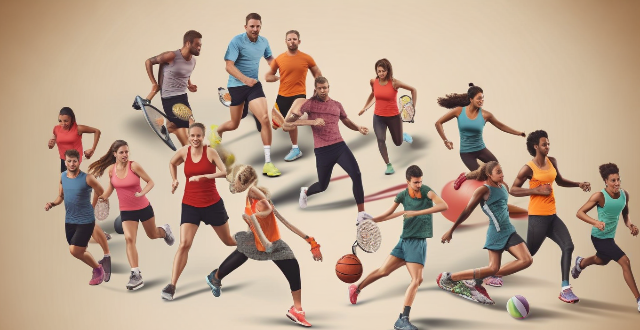
Can participating in sports activities help reduce loneliness in elderly people ?
Participating in sports activities can help reduce loneliness in elderly people by providing opportunities for social interaction, promoting psychological wellbeing, and offering a sense of purpose and accomplishment. Encouraging elderly individuals to engage in appropriate sports activities can be an effective way to address loneliness and improve their overall quality of life.
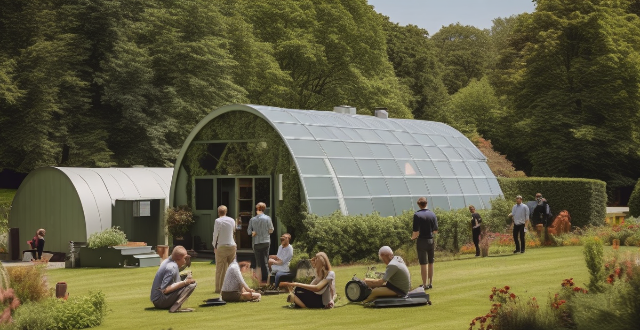
How can we prevent more people from becoming climate refugees ?
Strategies to prevent more people from becoming climate refugees include reducing greenhouse gas emissions, implementing adaptation measures, promoting international cooperation, raising awareness and education, and fostering sustainable development. By taking these actions, we can work towards a future where fewer people are forced to become climate refugees due to the devastating effects of climate change.

How can I meet new people through sports ?
How to Meet New People through Sports Meeting new people who share your passion for sports can be a fun and rewarding experience. Here are some ways to do it: 1. Join a sports club or league: This is one of the best ways to meet new people who share your interest in sports. There are many different types of clubs and leagues available, so you can find one that suits your skill level and interests. You can also participate in tournaments and events organized by the club, which will give you more opportunities to interact with other members. 2. Attend local sporting events: Attending local sporting events is another great way to meet new people who enjoy sports. You can go to games or matches of your favorite teams and strike up conversations with other fans. You can also volunteer at these events, which will allow you to meet people while contributing to the community. 3. Take up a new sport: Taking up a new sport is not only good for your physical health but can also help you meet new people. Joining a beginner's class or group lesson is a great way to learn a new sport while meeting others who are also learning. As you progress in your skills, you may have the opportunity to join more advanced groups or teams. 4. Participate in online sports communities: Online sports communities are a great way to connect with people from all over the world who share your passion for sports. You can join forums, chat rooms, or social media groups related to your favorite sports. Participating in online discussions and events can help you build relationships with other sports enthusiasts. 5. Host or attend watch parties: Hosting or attending watch parties for big games or tournaments is a fun way to meet new people who love sports as much as you do. Invite friends, family, and colleagues to watch the game together and encourage them to bring their own friends along. This can create a sense of camaraderie among everyone involved and lead to lasting friendships.

Does lifting weights help with weight loss ?
Weight loss is a common goal for many people, and weightlifting is one of the most popular methods. However, does lifting weights help with weight loss? This article explores the benefits and drawbacks of weightlifting as a means of weight loss. One of the main benefits of weightlifting is muscle growth, which can lead to an increase in metabolism and help with weight loss. In addition, weightlifting can also help with fat burning and improved cardiovascular health. However, there are also some potential drawbacks to weightlifting, including high initial costs, potential injuries, and a significant time commitment. If you are interested in trying weightlifting as a way to lose weight, make sure you do your research and find a program that fits your needs and lifestyle.
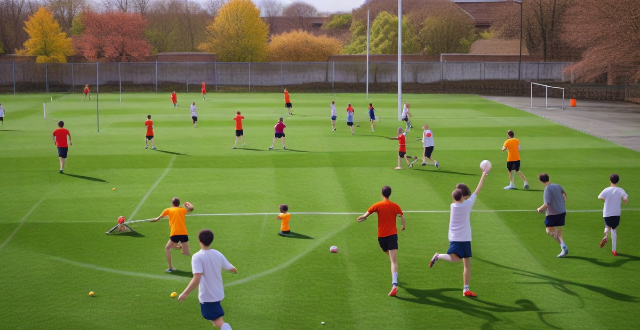
What are the benefits of sports for people with disabilities ?
Sports and physical activities provide numerous benefits for people with disabilities, including improved physical health, mental well-being, and overall quality of life. Engaging in sports can help individuals with disabilities build strength and endurance, improve mobility and coordination, and reduce the risk of injury. Participating in sports can also boost self-esteem and confidence, reduce symptoms of anxiety and depression, and provide opportunities for socialization. Additionally, sports can increase independence, open up access to recreational activities, and enhance overall well-being.
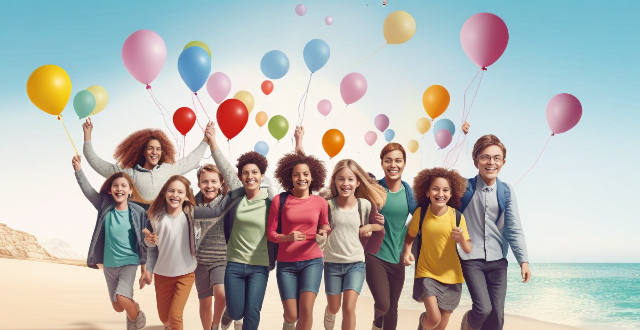
How can young people balance their education and involvement in climate action ?
Balancing education and involvement in climate action is crucial for young people. Effective strategies include time management, goal setting, and seeking support from peers and mentors. By prioritizing tasks, breaking down goals into smaller steps, and celebrating milestones, young people can achieve a balance between their education and involvement in climate action initiatives. Joining a community of like-minded individuals, finding a mentor, and collaborating with peers can also provide valuable support and opportunities for growth. With these strategies, young people can make a positive impact on the environment while achieving their educational goals.

Can exercise help manage symptoms of ADHD ?
Exercise can be a powerful tool in managing symptoms of ADHD by improving focus, reducing impulsivity, increasing energy levels, and promoting better sleep. Choosing the right type of exercise, setting realistic goals, and creating a consistent routine are essential for reaping the full benefits of physical activity for ADHD management.

What are the most effective ways to engage young people in climate science communication ?
Engaging young people in climate science communication is crucial for creating a sustainable future. Here are some effective ways to do so: 1. Use interactive and engaging methods such as gaming and simulations, visualization tools, and interactive workshops to make complex climate concepts more accessible and fun to learn. 2. Involve young people in the process by involving them in participatory research, citizen science projects, and advocacy and activism to increase their ownership and interest in climate science. 3. Make it relevant to their lives by providing localized information, discussing career opportunities, and sharing personal stories to help young people understand the impact of climate change on their lives and communities. By using these strategies, we can inspire the next generation of climate leaders and create a more sustainable future for all.

How accessible are modern cruise ships for people with disabilities ?
Modern cruise ships offer improved accessibility for people with disabilities through physical accommodations, service provisions, and recreational options.
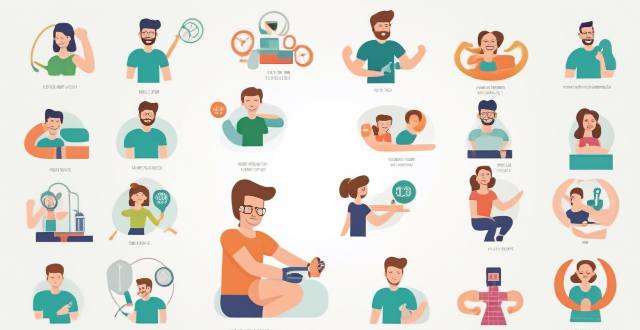
What impact does sports culture have on youth development ?
The article discusses the impact of sports culture on youth development, highlighting its benefits in physical health, mental well-being, social skills, and emotional growth. Participating in sports activities helps young people improve their fitness levels, motor skills, self-esteem, stress management, teamwork, leadership skills, cultural exchange, resilience, goal setting, and achievement. Encouraging young people to participate in sports can help them become well-rounded individuals who are better prepared for adulthood.